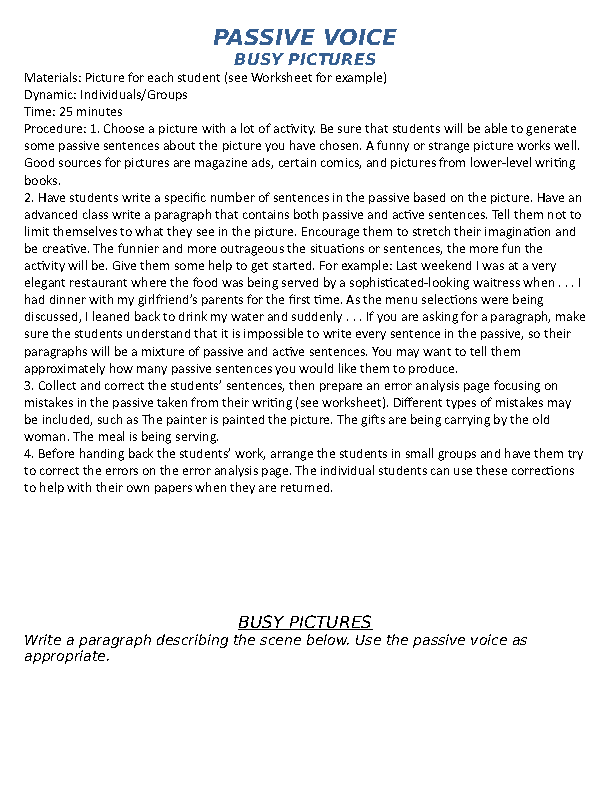Passive voice is a grammatical construction in which the subject of a sentence is the recipient of the action rather than the doer. While some may argue that active voice is more direct and engaging, there are times when passive voice can be useful in writing. Understanding when and how to use passive voice can enhance the clarity and effectiveness of your writing.
Many people believe that passive voice should be avoided at all costs, but in reality, it can be a valuable tool in certain situations. Passive voice is often used when the doer of the action is unknown, unimportant, or deliberately being concealed. It can also be used to emphasize the action itself rather than the doer. By learning how to use passive voice effectively, you can add variety and sophistication to your writing.
The Benefits of Using Passive Voice
Passive voice allows for a more formal and objective tone in writing. It can be particularly useful in scientific or academic writing, where the focus is on the results of experiments or research rather than the individuals conducting the work. Passive voice can also help to create a sense of objectivity and impartiality, which can be important when presenting controversial or sensitive information.
Furthermore, passive voice can be used to shift the focus of a sentence from the doer to the receiver of the action. This can be helpful in situations where you want to emphasize the impact of an action rather than the person responsible for it. For example, instead of saying “The team won the championship,” you could say “The championship was won by the team,” placing the emphasis on the achievement rather than the individuals involved.
In addition, passive voice can be a useful tool for creating variety in your writing. By alternating between passive and active voice, you can keep your readers engaged and avoid monotony. Using passive voice sparingly and strategically can help to maintain the flow and rhythm of your writing, making it more interesting and engaging for your audience.
While passive voice may not always be the best choice for every situation, it is important to recognize its value and understand how to use it effectively. By mastering the art of passive voice, you can enhance the clarity, objectivity, and variety of your writing, making it more engaging and impactful for your readers.
